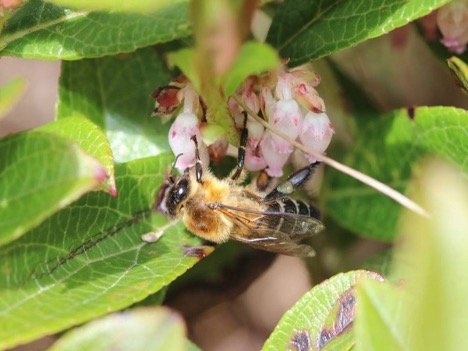
BY LEANDER C. DOMINGO
SCIENTISTS working in Asian countries have warned of declines in Asia’s pollinators that could affect food production and food security in the region.
A report released by the Australia-based Flinders University affirmed that bee pollinators are a crucial link to food production and food security for more than half the world’s population living in Asia.
However, the report noted that few species have been closely studied or assessed for their range, numbers and conservation status.
The report said the warning comes as 74 scientists working in 13 Asian and other countries said that the region’s bees could be under threat due to major habitat loss to urbanization, pollutants, alien species, climate change and other human forces.
It said the region’s bees comprise 15 percent of the world’s known bee species but only 1 percent of records.
Michael Orr, an entomologist, pointed out that while most studies of bees take place in high-income countries, they have all raised concerns and calls for more conservation or management solutions to curb or stop the decline of bees and other pollinators.
Orr is from Germany’s Staatliches Museum für Naturkunde Stuttgart and also contributes articles to Biological Conservation.
“Given the key roles native bees play, both ecologically and economically, in a region like Asia, understanding how to manage and maintain bee diversity is crucial to sustainable development in the region,” he said.
Also a member of the International Union for Conserving Nature (IUCN) Wild Bee Specialist Group (Asia) as well as Beijing and America ecological societies, Orr said, “The biggest impediment is a lack of knowledge about where and how species live, and foundationally an inability to even identify different species.”
The report also cited the authors’ call for attention to flagship social species such as native honey bees, stingless bees and bumble bees to start important conservation work.
Experts explained that flagship species can be essential for conservation messaging and to support broader conservation of the other 85 to 90 percent of non-social bees.
The report said solitary flagship bees are also important, including the world’s largest bee, the Indonesian Megachile pluto.
Despite being listed as vulnerable by the International Union for Conservation of Nature, the Megachile pluto bee is frequently sold online to Western buyers for exorbitant sums, the report added.
The authors are also calling for trans-border partnerships to work on bee and other pollinator management, given the complex political dynamics of the region.
They said active restoration of more intact or threatened habitats should be prioritized, given “dire threats” such as land conversion for palm oil plantation and widescale agricultural expansion.
Flinders University-based co-author, James Dorey, said science and research collaborations can help mend some of these divisions, but more open sharing of specimens and data will be key.
“Ecological studies at the national and regional level must be conducted to better understand how we can best maintain pollinator communities and the ecosystem services they provide,” Dorey said.
According to the report, scientists said conservation efforts must also be multi-disciplinary and cross-sectoral, bridging fields and methods to reach their maximum potential.
Efforts should also be made by government, nongovernment organizations and research personnel to better translate research into practical applications and effective conservation management for bees across Asia, it added.
